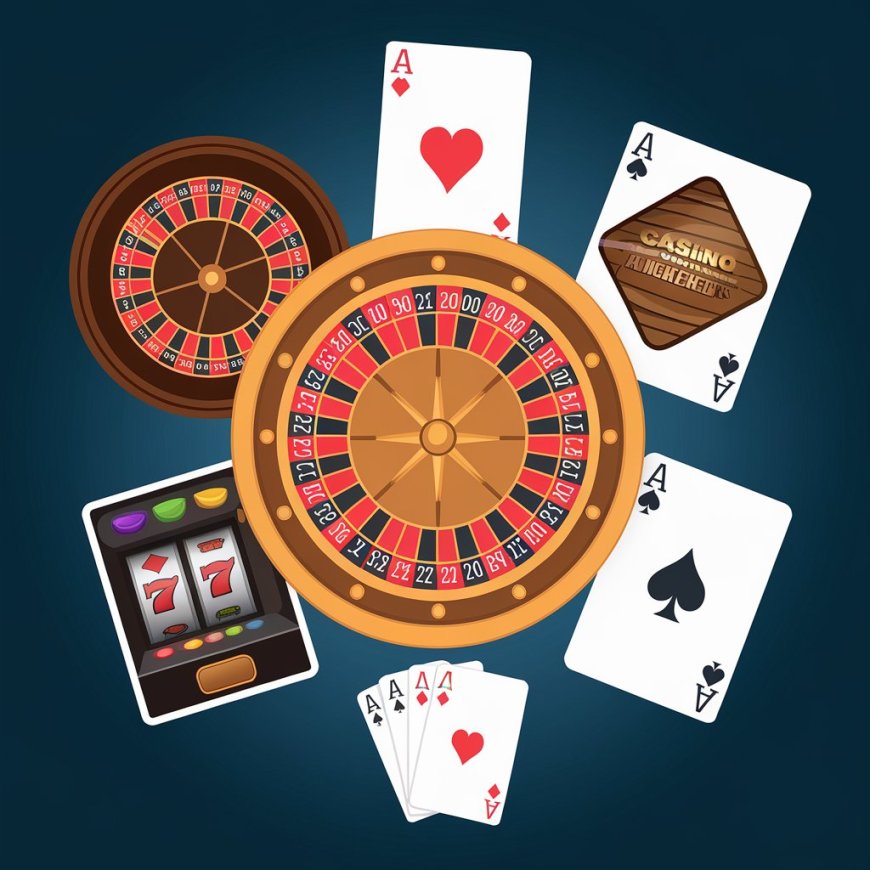Quality Assurance in Casino Game Development: Ensuring a Flawless Launch

Casino games attract millions of users worldwide due to the excitement of gambling and the chance to win big, whether real money or virtual prizes. But behind the scenes of these immersive experiences lies a rigorous development process, with quality assurance (QA) playing a crucial role in ensuring every launch is smooth, secure, and entertaining. In this guide, we’ll dive into why QA is critical in casino game development and how casino game development companies implement best practices for testing and improving game quality.
Why Quality Assurance Is Essential in Casino Game Development
When developing any application, especially games involving real money transactions, the stakes are high. Users expect a seamless, bug-free experience, and for casino games, trust and user satisfaction are paramount. The role of QA here is to scrutinize every aspect of the game to ensure it meets user expectations, complies with industry regulations, and operates without any functional, performance, or security flaws.
The top casino game development companies today aim for high-quality deliverables and compliance with industry standards. By following QA best practices, online casino game developers safeguard the game against malfunctions that could jeopardize user trust or lead to financial loss. Here are the primary goals of quality assurance in casino game development:
-
User Experience (UX): Users expect casino games to load quickly, function smoothly, and be free of bugs. QA teams prioritize testing for performance issues, UI/UX glitches, and load times to enhance the user experience.
-
Security and Compliance: Casino apps handle sensitive user data and, in real-money games, financial transactions. QA teams assess the game for vulnerabilities, ensuring it meets industry standards like PCI-DSS for financial security and regional regulatory requirements.
-
Fairness and RNG Testing: Ensuring fairness in gameplay is vital in casino game development. QA verifies that Random Number Generators (RNGs) are truly random and compliant with industry standards to maintain fairness in every round or roll.
Key Phases of QA in Casino Game Development
-
Requirements Analysis:
-
This phase is where the QA team collaborates closely with online casino game developers to understand the game’s requirements and objectives. Analyzing game rules, functionality, user stories, and regulatory requirements enables the QA team to create a comprehensive testing plan.
-
For instance, if a casino game development company is tasked with creating a slot game, the QA team must understand the paylines, jackpots, bonus features, and payout ratios to test these elements accurately.
-
Test Planning and Strategy:
-
The test planning phase includes defining test cases, selecting testing tools, and planning for specific testing types—functional, load, security, and compliance. Test planning also establishes a clear timeline for testing stages, considering the complexity of a casino game and the targeted launch date.
-
A well-structured test plan is essential, as it helps the QA team cover every aspect of the game, from basic functionality to high-stress testing scenarios.
-
Test Environment Setup:
-
Testing a casino game requires a controlled environment that mirrors the conditions under which the game will operate. Test environments allow QA teams to run simulations, adjust parameters, and test performance across devices and browsers.
-
Setting up these environments includes integrating testing tools for performance, security, and compliance checks, as well as preparing user data or test accounts for real-time game testing.
Key Testing Types in Casino Game Development QA
1. Functional Testing
Functional testing ensures that the game functions as intended, with all features working smoothly. In casino game development services, this includes verifying that key functionalities such as account creation, deposits and withdrawals, game mechanics, bonuses, and other in-game features work without errors.
For example:
-
Login and Registration: Testing the user onboarding process to make sure users can register, log in, and access the game without issue.
-
In-Game Features: Ensuring that in-game actions (e.g., placing bets, spinning reels, or dealing cards) execute correctly.
-
Payments and Withdrawals: Validating payment gateways, in-game purchases, and withdrawal functions for accurate financial transactions.
2. Performance Testing
Performance testing ensures the game performs well under different conditions. Casino games often handle a high number of users simultaneously, especially during peak hours or events. The QA team performs load testing to confirm that the game can handle these conditions without lag or crashes.
Examples include:
-
Load Testing: Running tests to simulate thousands of players accessing the app simultaneously to observe how the game’s infrastructure handles the load.
-
Stress Testing: Testing the app under extreme conditions to gauge its stability and identify potential points of failure.
3. Security Testing
Security testing is critical in casino game development due to the sensitive nature of user data and financial transactions. A breach in security could not only result in financial loss but also in loss of trust. Security testing involves:
-
Data Protection: Ensuring user data is encrypted and stored securely, with robust access controls.
-
Transaction Security: Testing payment gateways and transaction systems to protect against fraud or data leaks.
-
Compliance: Verifying that the game meets industry standards and regulatory requirements, such as the PCI-DSS for secure handling of payment information.
4. Compliance Testing
Compliance testing ensures that the game adheres to industry and government regulations, especially in regions where online gambling is tightly regulated. This involves verifying licenses, certifications, and permissions required for operating legally.
Compliance testing also involves RNG certification, which guarantees that the Random Number Generator provides fair and unbiased results in every game.
5. RNG and Fairness Testing
One of the most critical elements in QA for casino games is ensuring fair play. For example, in slot machines or card games, the RNG algorithm must be reliable, unbiased, and produce random results. Any bias or predictability in these results can lead to mistrust or even regulatory penalties.
The QA team uses specialized tools and works with third-party auditors to certify the game’s fairness, ensuring users have a fair chance of winning in accordance with game design.
Testing Tools and Technologies in Casino Game QA
Quality assurance in casino game development requires a diverse range of testing tools and technologies. Here are some of the most commonly used:
-
Selenium for automated testing of web-based casino games and platforms.
-
Appium for testing mobile casino games across multiple devices.
-
JMeter for load and stress testing, ensuring performance scalability.
-
OWASP ZAP and Burp Suite for security testing, identifying vulnerabilities in casino games.
-
Tricentis Tosca for end-to-end testing automation, covering functional and regression testing.
These tools allow QA teams to accelerate testing processes, identify bugs efficiently, and ensure game quality across multiple platforms.
Best Practices for QA in Casino Game Development
To maintain high standards and ensure a flawless game launch, casino game development companies adhere to industry best practices. Some of these include:
-
Continuous Testing: Implementing continuous testing throughout the development process helps detect and resolve issues early. QA teams conduct tests at each stage, from the development phase to post-launch maintenance.
-
Automated Testing: Automation reduces testing time and ensures thorough coverage, especially for regression testing and repetitive tasks. Automated scripts can perform complex testing procedures across multiple game scenarios and devices.
-
User-Centric Testing: QA teams adopt a user-focused approach, simulating real user behavior and preferences. This enables them to assess the game’s usability, user engagement, and overall experience from a player’s perspective.
-
Frequent Audits: For online casino games, compliance audits and security checks are vital. Regular audits help ensure that the game meets both regulatory standards and player expectations.
You can also read about the top testing tips for casino game development.
The Role of QA in Ensuring a Successful Launch and Beyond
A successful casino game launch depends heavily on rigorous QA testing. Even after launch, QA teams continue to monitor the game’s performance, collecting user feedback and identifying issues that may arise post-launch. Continuous updates and bug fixes help maintain game quality, providing users with a seamless experience long after the initial release.
Casino game development services today emphasize not only game development but also ongoing QA and support. By maintaining quality at each stage of the game’s lifecycle, casino game development companies ensure their games remain competitive and trusted in the market.
Conclusion
In the world of online gaming, where user expectations are sky-high and regulatory demands are strict, quality assurance is non-negotiable. Through thorough testing, online casino game developers can ensure their games are secure, fair, and glitch-free, providing users with a trusted and enjoyable experience. QA plays a vital role in the launch success and long-term reputation of any casino game.
By implementing robust QA practices, casino game development companies not only protect their business interests but also build loyalty and satisfaction among their players. As the casino gaming industry grows and evolves, so does the importance of quality assurance in ensuring a flawless gaming experience for players worldwide.
What's Your Reaction?

























